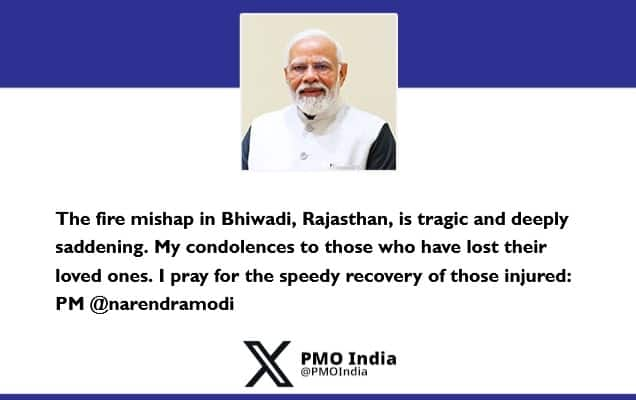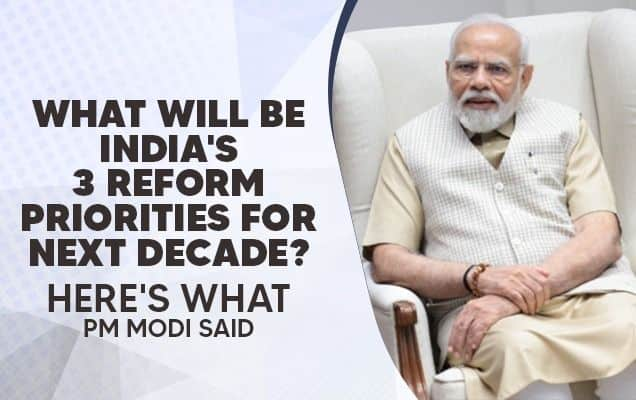Your Excellency Prime Minister Pushpa Kamal Dahal ‘Prachanda’,
Distinguished members of the Nepalese delegation,
Friends from the media.
In the history of our friendship, today is significant day.
On his first visit abroad after assuming the office, it is a great pleasure for me to welcome Excellency 'Prachanda', and members of his delegation in India.

Friends,
Both our societies share deep rooted historical ties and civilizational linkages.
Shared rivers, the open border, timeless people to people ties bind our two nations closely.
Along with the relationship between our governments, the links between our societies provide depth and character to our partnership.
We share our burden during difficult times, just as we celebrate each other’s achievements.
Indeed, our friendship is time-tested and unique.
As immediate neighbours and close friendly nations, peace, stability, and economic prosperity of Nepal is our shared objective.
At every step of Nepal's development journey and economic progress, we have been privileged to be your partner.
We also commend the role that you have personally played in strengthening the democratic institutions in Nepal.
You have been a catalytic force of peace in Nepal. I am confident that under your wise leadership, Nepal will successfully implement the Constitution through inclusive dialogue accommodating the aspirations of all sections of your diverse society.
I wish you every success in this endeavour.

Friends,
In our extensive and productive discussions today, Prime Minister Prachanda and I covered the full spectrum of bilateral cooperation.
I conveyed to PM Prachanda that India stands ready and prepared to strengthen its development partnership with Nepal.
And, we will do so as per the priorities of the people and government of Nepal.
In this context, we have today signed the agreement for line of credit of US$ 750 million for post-earthquake reconstruction of Nepal.
I am confident that it would bring relief to millions of people affected by last year’s devastating earthquake in Nepal.
India has also agreed to extend additional Line of Credit for new projects such as Phase-2 of Terai Roads, power transmission lines, substations and a polytechnic in Kaski.
Friends,
Prime Minister Prachanda and I recognize that securing our societies is essential for achieving our shared objectives of development and strong economic growth.
We also agree that our security interests are closely aligned and inter-linked.
Open borders between our countries provide great opportunities for cooperation and interaction among our people.
But, we must also continue to guard against elements that seek to misuse the border.
Continued close cooperation between our defence and security agencies is, therefore, important for our growing trade, economic, cultural and development partnership, and for the well being of our two peoples.

Friends,
Trade, connectivity, in all its dimensions development projects and mutual investments are key pillars of our partnership with Nepal.
India’s initiatives for open sky, cross-border power trade, transit routes, cross-border connectivity would directly benefit Nepal and help strengthen our economic partnership.
Nepal and India are also closely working on a range of areas of economic engagement including energy and water resources sectors.
Prime Minister Prachanda and I agreed to push for speedy and successful implementation of the ongoing hydro-power projects, and development and operationalization of transmission lines.
This would be a source of much needed energy, and revenue generation for Nepal.
We have also agreed on the need to add depth and vitality to links between our societies.
We have agreed to show case our shared Buddhist heritage, and focus on the development of Ayurveda and other traditional systems of medicine.
Prime Minister and I have also agreed to focus on close monitoring and time bound completion of all development projects.
Prime Minister and I are confident that our decisions today would provide strength to our economic engagement and take it to new heights.
Excellency,
Your visit has been most timely.
I am confident that our discussion today would further cement our centuries old relations.
And, write a new and glorious chapter of our partnership. Once again, Excellency, a very warm welcome to India. I hope you will have a pleasant and fruitful stay in India.
Thank you.

PM begins press remarks: Welcome Excellency Prachanda. Today a significant day in history of our friendship pic.twitter.com/U7KhsiF0VI
— Vikas Swarup (@MEAIndia) September 16, 2016
PM: Our friendship is time-tested & unique.We share our burden during difficult times,just as we celebrate each other’s achievements.
— Vikas Swarup (@MEAIndia) September 16, 2016
PM:As immediate neighbours& close friendly nations,peace, stability,&eco prosperity of Nepal is our shared objective pic.twitter.com/qUanlDsivz
— Vikas Swarup (@MEAIndia) September 16, 2016
PM:Commend role you've personally played in strengthening democratic institutions in Nepal. Wish you every success pic.twitter.com/JlbWAPXEB4
— Vikas Swarup (@MEAIndia) September 16, 2016
PM:India stands ready & prepared to strengthen development p'ship w/Nepal. We will do so as per the priorities of the people & govt of Nepal
— Vikas Swarup (@MEAIndia) September 16, 2016
PM:Our security interests are inter-linked.We agreed that securing our societies is essential for achieving shared objectives of dev &growth
— Vikas Swarup (@MEAIndia) September 16, 2016
PM: Continued coopn b/w our defence & security agencies is imp to guard our open borders that provide opp'ties for interaction to our people
— Vikas Swarup (@MEAIndia) September 16, 2016
PM highlights key pillars of p'ship & mentions India’s initiatives that would benefit Nepal & strengthen our p'ship pic.twitter.com/qPQD15SDdF
— Vikas Swarup (@MEAIndia) September 16, 2016
PM:We agreed to push for speedy &successful implementation of ongoing hydropower pjcts & dev. & operationalization of transmission lines
— Vikas Swarup (@MEAIndia) September 16, 2016
PM:We have agreed to show case our shared Buddhist heritage & focus on the development of Ayurveda and other traditional systems of medicine
— Vikas Swarup (@MEAIndia) September 16, 2016
PM: PM and I have also agreed to focus on close monitoring and time bound completion of all development projects. pic.twitter.com/aQmR1OGokh
— Vikas Swarup (@MEAIndia) September 16, 2016
PM ends:Confident that our discussion today wud further cement our centuries old relations.And,write a new & glorious chapter of our p'ship
— Vikas Swarup (@MEAIndia) September 16, 2016













